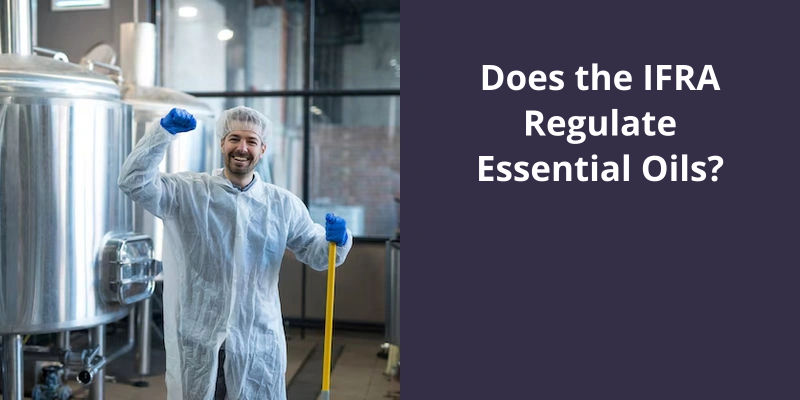Selling perfume dupes, which are essentially imitation fragrances, is generally considered legal as long as they do not infringe on the original brand’s trademark or misrepresent themselves as the original brand. This is because a scent itself cannot be copyrighted or patented, which means you can develop a fragrance mimicking the scent profile of a popular perfume. However, the branding, logo, bottle design, name, and other proprietary aspects of the original can be protected under intellectual property laws. So, while you can sell a fragrance that smells similar, it’s crucial to avoid using anything that could be seen as copying or exploiting the brand image of the original perfume.

Are Perfume Dupes Illegal?
The main difference between perfume dupes and knockoffs lies in the intent behind their creation and sale. Knockoffs are intentionally created to deceive consumers into believing that they’re purchasing the original designer fragrance, often using the same packaging or branding. This is a clear violation of intellectual property rights and trademark infringement.
They aren’t marketed or sold as the original product, and there’s no attempt to deceive consumers into thinking they’re purchasing the genuine fragrance.
From a legal standpoint, perfume dupes are generally considered to be within the boundaries of the law. As long as the dupe doesn’t infringe on any trademarks or copyrights of the original perfume brand and is clearly marketed as a separate product, it’s unlikely to be deemed illegal.
Some jurisdictions may have stricter regulations in place, while others may have more lenient rules. It’s advisable for both consumers and sellers to familiarize themselves with the specific laws in their region to ensure compliance.
Perfume dupes offer consumers an affordable alternative to expensive fragrances and, when created and sold responsibly, can be a legitimate and successful business venture.
The contract between a local department store and a perfume maker plays a crucial role in determining whether tester perfumes can be sold or not. While some contracts may allow selling tester perfumes, others strictly prohibit it. The terms and conditions outlined in these agreements often include clauses that prevent stores from offering any discounts on the perfume. Consequently, this limitation poses challenges for both retailers and consumers alike.
Why Can’t You Sell Tester Perfume?
Instead, they’re allowed to sell the tester perfume as a promotional item, usually accompanied by a purchase of the full-size product. The intention behind this practice is to allow customers to experience the fragrance before committing to a purchase.
This is why you often see tester perfumes displayed at the beauty counters in department stores, enticing potential buyers to try out the scent.
How to Properly Use and Apply Tester Perfumes for Optimum Results.
- Start by spraying the tester perfume on your wrist or inner elbow.
- Avoid rubbing the perfume into your skin as it can alter the fragrance.
- Allow the perfume to settle on your skin for a few minutes.
- Take note of the initial scent and how it interacts with your body chemistry.
- Sniffing your wrist intermittently throughout the day will help you identify how the fragrance develops over time.
- It’s recommended to test only one perfume at a time to prevent scent confusion.
- Don’t rush the testing process – give each fragrance enough time to showcase it’s different notes.
- Consider testing the perfume in different environments to see how it performs in various climates or settings.
- Keep in mind that perfumes can smell differently on different people, so always rely on your own experience.
- Take notes on your findings to remember which tester perfumes impressed you the most.
- When ready to purchase a full-size bottle, test the fragrance on your skin again to ensure it’s still appealing to you.
It’s essential to consider the ethical implications of purchasing perfume dupes. While these affordable alternatives may seem harmless, it’s worth recognizing that supporting such products might inadvertently contribute to the unethical practices of certain companies. These practices can range from animal testing and labor exploitation to environmental irresponsibility. By delving deeper into the origins and practices of the brands behind these dupes, consumers can make more informed decisions about their purchases.
Are Perfume Dupes Ethical?
Are perfume dupes ethical? This question has sparked much debate among consumers and industry experts. On one hand, purchasing a dupe fragrance can seem like a harmless way to save money while still enjoying a familiar scent. However, it’s important to consider the ethical implications of supporting companies that produce these dupes.
By purchasing a dupe fragrance, you may be directly or indirectly supporting companies that engage in unethical practices. Many of these companies are known for using animal testing, which involves subjecting animals to potentially harmful substances in order to determine the safety of a product. This practice is widely criticized for it’s cruelty and unnecessary harm to animals.
Furthermore, some companies that produce perfume dupes have been accused of exploiting workers. This can take the form of low wages, unsafe working conditions, and long hours without adequate breaks. By purchasing from these companies, you may be contributing to a cycle of unfair labor practices and perpetuating the mistreatment of workers.
In addition, the production of perfume dupes may not be environmentally responsible. Some companies cut corners by using cheap and potentially harmful ingredients, which can have long-term effects on both human health and the environment. Additionally, the manufacturing processes used to create these dupes may contribute to pollution and waste.
The Impact of Perfume Dupes on the Original Brand’s Reputation and Sales
- The perception of the original brand may be negatively affected by perfume dupes
- Customers may opt for cheaper dupes instead of purchasing the original brand
- Sales of the original perfume may decline due to the availability of affordable alternatives
- The reputation of the original brand may be seen as less exclusive or high-end
- Perfume dupes can lead to brand dilution and loss of perceived value
- The original brand may suffer from competition with dupes in the market
- Some customers may view perfume dupes as a more ethical or accessible choice
- The availability of dupes increases customer options and price competition
- The original brand may need to innovate or offer unique features to maintain competitiveness
- Perfume dupes can impact the profitability and financial success of the original brand
Watch this video on YouTube:
One option to consider when making and selling homemade perfume is targeting gift shops in both physical and online spaces. Additionally, independent chemist’s shops and toiletry stores could be potential avenues for showcasing and retailing your unique product.
Can I Make Perfume at Home and Sell It?
Creating homemade perfume and selling it can be a rewarding and creative endeavor. Fortunately, there are several ways to market and sell your product to a wide range of potential customers. One effective method is to approach local gift shops, both physical stores on the high street and online platforms. Gift shops often stock unique and handmade products, making them an ideal target for your homemade perfumes.
In addition to gift shops, consider reaching out to independent chemists shops and toiletry stores. These establishments may be more open to stocking your homemade perfume if it aligns with their customer base and brand. Independent stores often value sourcing handmade and natural products to offer their customers a unique and exclusive experience.
When promoting your homemade perfume, it’s essential to showcase it’s uniqueness and quality. Highlight the ingredients you use, emphasizing any natural and organic elements. Potential customers are often drawn to products with a story behind them. Therefore, consider sharing the inspiration, process, and personal touch that goes into creating your perfumes.
Another effective way to sell homemade perfume is by leveraging social media platforms. Create an engaging and visually appealing online presence, showcasing your products and their various scents. Utilize platforms such as Instagram to share captivating images, stories, and customer testimonials, which can help to generate interest and build a loyal customer base.
By targeting gift shops, independent chemists shops, and toiletry stores, you can ensure your products reach the right audience. Emphasize the uniqueness and quality of your perfumes, and utilise social media platforms to build an online presence and customer base. Finally, consider participating in local events and markets to directly engage with potential buyers and gain valuable industry connections.
Source: Here’s How To Make Money by Selling Homemade Perfume
Conclusion
. This means that perfumers should be cautious in avoiding any trademark infringement when creating their fragrance clones.





